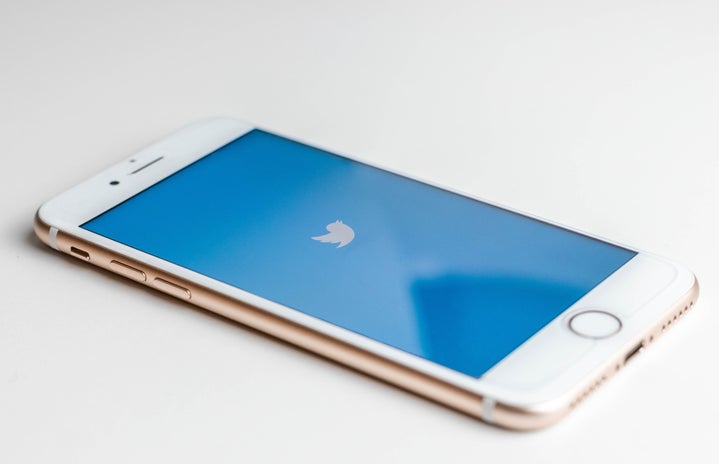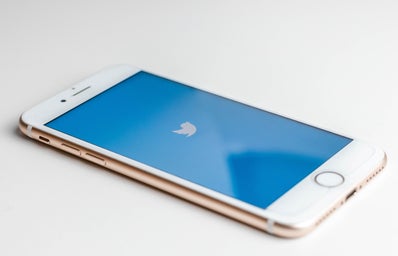Disclaimer: The article contains mentions of transphobia and links to J.K. Rowling’s platform. By including this source in the article, in no way do I intend to promote or support Rowling’s platform, or her ignorant and offensive rhetoric.
If you’re anything like me, or like lots of teens and 20-somethings today, you were probably obsessed with Harry Potter as a kid. You probably read all the books, watched all the movies. Maybe you had some cool merch, or dressed up as Hermoine for Halloween. Maybe you even wrote Harry Potter fanfiction…or was that just me? Well, regardless of to what extent you were a Harry Potter kid, you’re likely in some way now struggling to deal with the fact that the author of the series that significantly shaped your childhood is kind of…the worst.
J.K. Rowling’s slew of public criticism all began a couple of years ago with a tweet in which she defended Maya Forstater, a tax specialist from the U.K. who lost her job due to transphobic tweets in which criticized the making of “woman” and the concept of gender-identification more inclusive. Rowling received immense pushback on Twitter from trans activists, feminists, and Harry Potter fans alike, but that did not dissuade her. Recently, Rowling has produced a number of offensive tweets, posting a particularly inflammatory and unnecessary one in the middle of the height of the COVID-19 crisis. She responded to an article referring to “people who menstruate” by stating: “I’m sure there used to be a word for those people. Someone help me out. Wumben? Wimpund? Woomud?” Rowling’s tweet was frustrating because it attempts to delegitimize the use of non-gendered language and erase the experiences of transgender and gender non-conforming people. And though I do not deny her assertion that cisgender women have certain “biological realities,” this should not discount the realities and experiences of trans women and the ways in which those experiences can sometimes overlap.
Since her unnecessary tweets, Rowling has been accused (rightfully so) of being a TERF—a trans-exclusionary radical feminist. This label is used to describe women who identify as feminists, but whose “feminism” is not inclusive to the trans community. Most TERFS are a product of the “gender critical feminist” movement, a pseudo-feminist ideology that denounces the idea of gender and changing one’s sex/gender identity, and which has been on the rise since the explosion of modern feminism in the ‘60s and ‘70s.
J.K. Rowling recently published a blog post in which she elaborately defended her stance, detailing all the concerns she has regarding the trans-rights movement. Rowling outlines many “reasons” behind her transphobia, including her involvement in education and her being a proponent of freedom of speech. However, I would say the argument I found most…interesting (to put it kindly) was her concern that more biological women are seeking to transition today in order to escape sexism and possibly homophobia as well. This idea is genuinely mindboggling. The fact that she thinks someone’s life is easier if they are trans/if they transition is remarkable to me. Trans men are men, but they also have their own set of struggles and experience high rates of discrimination and prejudice. Tony McDade, a Black trans man who was recently killed by a Tallahassee police officer is an unfortunate example of the (potentially fatal) struggles that come along with being transgender.
Rowling also has more strange ideas about the rise in people coming out as trans and transitioning in recent decades, believing it a conspiracy worth worry rather than the simple fact that the world has become more aware and inclusive of trans and queer people in recent years. Rowling does not acknowledge this, however, and rather irrationally speculates whether or not if she had been born today, she would identify as trans herself: “The more of their accounts of gender dysphoria I’ve read, with their insightful descriptions of anxiety, dissociation, eating disorders, self-harm and self-hatred, the more I’ve wondered whether, if I’d been born 30 years later, I too might have tried to transition. The allure of escaping womanhood would have been huge.” This claim is certainly the most incredible belief that she has made yet. Gender identity, like sexuality, is innate—it isn’t a choice. Rowling then goes on to describe how she suffered through severe OCD as a teenager, and how she may have been attracted to the community that the trans identity offers in order to find solace and comfort during a difficult time. This argument is so beyond belief that there is not much else I can say other than: no. Stop. I myself struggled with OCD and depression in my high school years, and surprise—that did not make me trans! I do identify as bisexual, but that is also something that has been with me my whole life and was not a result of my mental health issues (shocker, I know).
Most of J.K. Rowling’s theories have absolutely zero basis in reality. Her idea of “feminism” fails to be intersectional in a way that is not only ignorant but also offensive. Although her ideals and actions are extremely disappointing, I can’t say that they are that shocking. Rowling has a history of queerbaiting in her stories, particularly when she stated that Dumbledore was gay online but never explored that theme in the books or revisited it in any other way. I also felt that The Cursed Child exhibited strong queerbaiting with the unclear friendly/romantic relationship between Albus and Scorpius. Even many of the stars from the Harry Potter movies spoke out against Rowling’s views, Daniel Radcliffe saying, “Transgender women are women. Any statement to the contrary erases the identity and dignity of transgender people…” Finally, some common sense.
Near the end of her article, Rowling also discusses her history with sexual assault and intimate partner violence, which I recognize is no easy thing to address, especially when you have such a platform that she does. I respect her openness and courage, though I do not support her argument. In her blog post, she states, “I have a complex backstory, which shapes my fears, my interests and my opinions. I never forget that inner complexity when I’m creating a fictional character and I certainly never forget it when it comes to trans people.” I want to recognize that, yes, of course, J.K. Rowling is a multi-faceted human being with a complex backstory. But that doesn’t excuse her using her influence and position to spread ignorance and hate. For the most part, I do not agree with the idea of “separating the art from the artist.” I believe that the two are inextricably tied together and the support of one is the support of the other. However, because of the deeply ingrained effects the series has had on my adolescence, this becomes more difficult with Harry Potter. It is not something I want to leave behind, and I assume many fellow queer people and allies can empathize with this.
Daniel Radcliffe offers us a comforting solution; “I really hope that you don’t entirely lose what was valuable in these stories to you… if you found anything in these stories that resonated with you and helped you at any time in your life — then that is between you and the book that you read, and it is sacred. And in my opinion nobody can touch that. It means to you what it means to you and I hope that these comments will not taint that too much.” Therefore, I am choosing to recognize Harry Potter himself as the sole author of the books. I propose considering the Harry Potter saga to be an autobiography written by an unproblematic (and yes, fictional) person. Let’s leave J.K. to the Twitter trolls and carry on with our lives, rejecting her and embracing the fandom.





